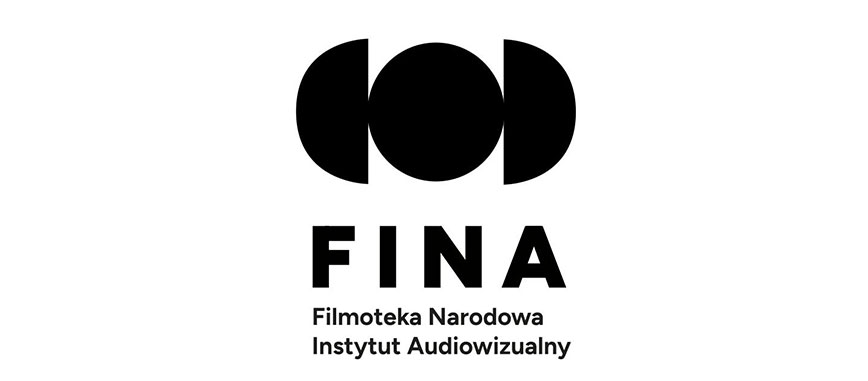
25th of October the Warsaw Iluzjon cinema hosted a joint project of Filmoteka Narodowa and Cyfrowe Repozytorium Filmowe - I LOVE ![]() POLISH CINEMA. The project is addressed mostly to foreign residents (but not only!).
POLISH CINEMA. The project is addressed mostly to foreign residents (but not only!).
The event opened with KANAL directed by Andrzej Wajda - one of the most important works of the Polish film school, awarded at the Cannes Film Festival.
The ins and outs of the production of this masterpiece were presented to the audience by a well-known film expert and former director of the Polish Film Festival in Gdynia - Michał Chaciński. During the lecture, the guests could learn more about the Polish film school and production of Polish films shortly after the end of World War II. Mr. Chaciński brought up the history of KANAL's perception in Poland and abroad, not refraining from mentioning several cracks from the film set. It came as a surprise to the audience that the story of the young resistance fighters hiding in the city’s sewers was based on real-life events and that a tailor made scenography was specially built for the purpose of this production.
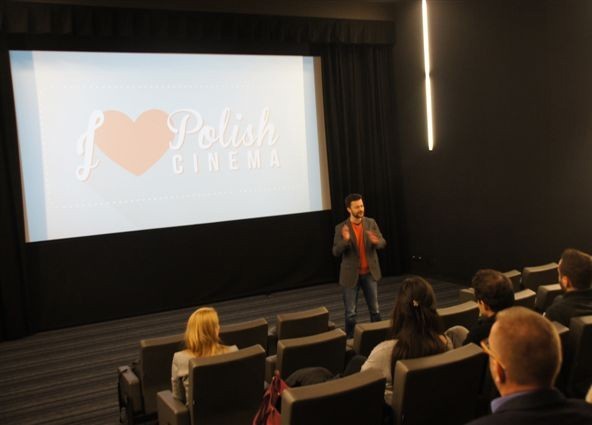 Fot. Agnieszka Bezubik CRF
Fot. Agnieszka Bezubik CRF
If you want to know more about the secrets of the Polish cinema - in English - you're welcome to join us in Mała Czarna room, on 16 December 2014, at 8.00 p.m.
We are looking forward to seeing you!
Schedule:
16 December 2014 r.; 8.00 p.m.
"Good Bye Till Tomorrow" (Do widzenia, do jutra) dir. Janusz Morgenstern, Poland 1960 80’
Jacek, a young and romantic student, meets Margueritte, the beautiful daughter of the French consul. He neglects his friends and the students’ amateur theatre in which he is both an actor and director. He believes that Margueritte reciprocates his feelings, however, for her their love is yet another short stop in a never ending journey, yet another summer fling…
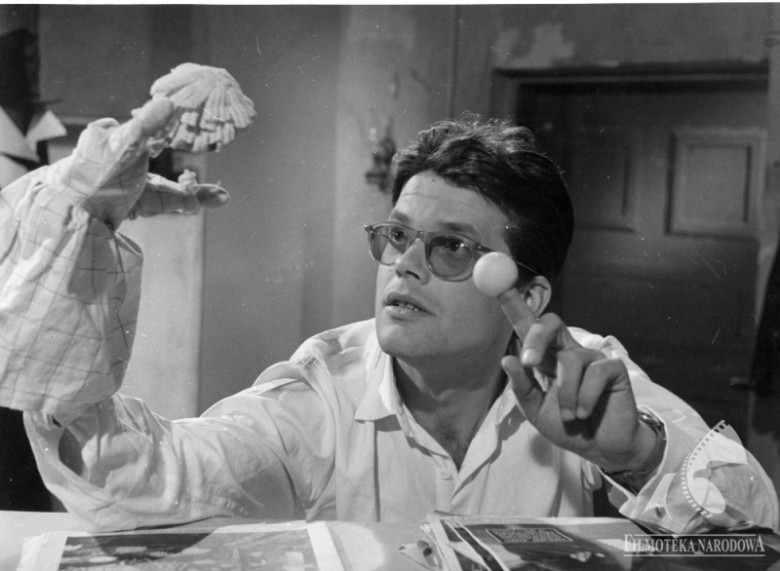
27 January 2015 r. ; 8.00 p.m.
"The Debt" (Dług) dir. Krzysztof Krauze, Poland 1999 97’
Krzysztof Krauze presents Polish reality of the 1990s. Adam and Stefan, two young intellectuals, quit their studies to start their own business. However, in order to get things going they need capital. When bank refuses them a loan, they are approached by Gerard, an old friend of Stefan’s. Ultimately, they refuse his offer as the commission is far too high but they soon learn that they are in debt nevertheless. The debt is hardly specified but it grows by the day. The nightmare begins – threats, harassing, violence. They give Gerard all they have but they do not stand a chance against the ruthless criminal. Helpless and left to their own devices by the police they ultimately realise that the only way to put an end to this nightmare is to kill their tormentor.
An unusual case of life and art coming together – a real life event inspiring a movie which, in turn, due to its popularity and the audience identifying with the lot of the heroes, influenced the lives of the models of the two main characters.
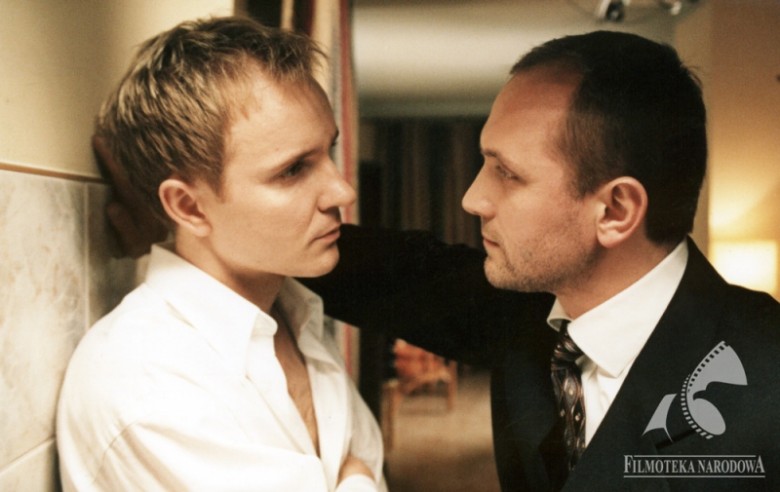
February 2015
"Protective Colouration" (Barwy ochronne) dir. Krzysztof Zanussi, Poland 1976 96’
"All people are conformists just like you and I" – this is one of the lessons that a young linguist learns from his senior colleague, a diabolic associate professor. The young idealist on the one hand learns very soon how corrupted and intellectually shallow the scientific milieu is, on the other hand, however, he also learns that he is not free from hypocrisy himself.
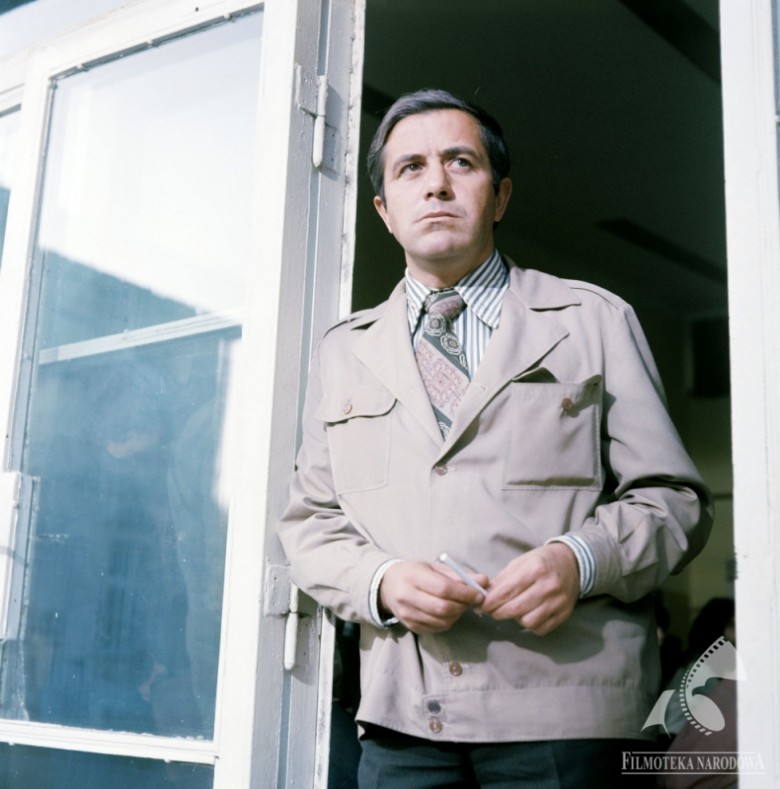
March 2015
"The Saragossa Manuscript" (Rękopis znaleziony w Saragossie) dir. Wojciech Jerzy Has, Poland 1964 177’
1739. Alphonse van Worden, a captain of the Walloon Guard, crosses the wild range of the Sierra Morena. He refuses to listen to tales of demons, invisible hands that push travellers into chasms, and abandoned inns inhabited by evil spirits. He stops for the night in such an inn and his visit starts a whole sequence of supernatural and frightful events which will alter his straightforward psyche. Moving through the maze of a Chinese box tale the hero begins to think and the aim of the game is to determine how he is going to think. Everything can be interpreted in two ways – the magic, mystical philosophy of the Cabbalist is opposed by the humanist materialism of the Mathematician.
This brilliant adaptation of one of the greatest works of world literature was awarded the prizes of festivals inEdinburghandSan Sebastian, and the Prize of Spanish Film Critics.
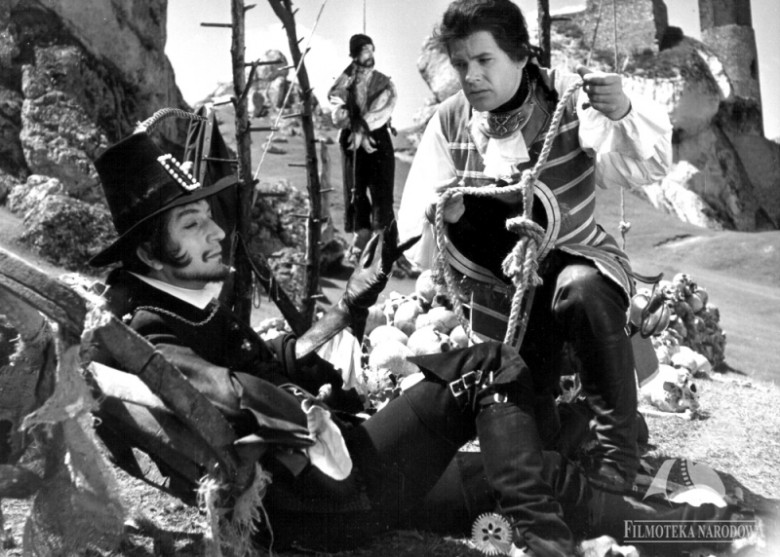
April 2015
"Blind Chance" (Przypadek) dir. Krzysztof Kieślowski, Poland 1981 112’
Blind chance or fate? Kieślowski comments on the forces which control human destiny. The direction which his life will take depends on whether the 20 year old Witek can catch his train. In the first version of events Witek makes it, he meets a devout communist on the train and joins the party youth organisation. In the second scenario he fails to get on the train and starts a fight with the security guards on the platform, consequently, he is sent to a labour camp where he meets people from the opposition movement and decides to join them. In the third scenario Witek arrives late but he is not arrested – he returns to the university, graduates, and starts a scientific career with no political involvement.
A universal message – faith in the internal autonomy of every human being and insistence on common decency regardless of circumstances – joined in a comment on the current political debate, an objection raised against simplified black-and-white divisions. One of the “delayed releases” of the 1980s with the striking main part played by Bogusław Linda.
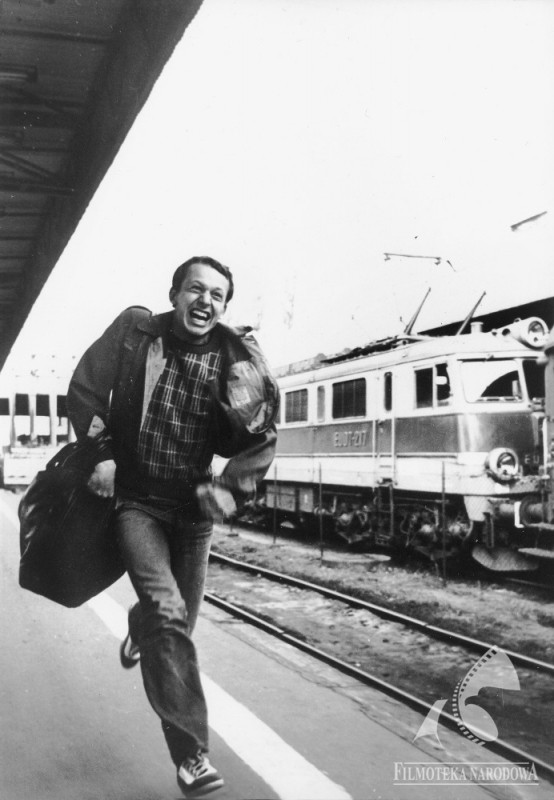
May 2015
"Va Banque" (Vabank) dir. Juliusz Machulski, Poland 1981 104’
Warsaw, 1934. The experienced safe-cracker Henryk Kwinto is free after six years in prison. The death of a friend makes him abandon his earlier resolve and Kwinto decides to organize his last robbery. Although he robs a bank, revenge is more important than the money – he wants to punish the dishonest banker who is responsible both for Kwinto’s prison sentence and his friend’s death.
An ageless hit of Polish popular cinema, perfectly produced perverse tale of a rightful safe-cracker who lives by the creed “Instead of stealing as a director, factory owner, secretary or a president, it is better to steal, par excellence, as a thief. It seems a more honest way.”
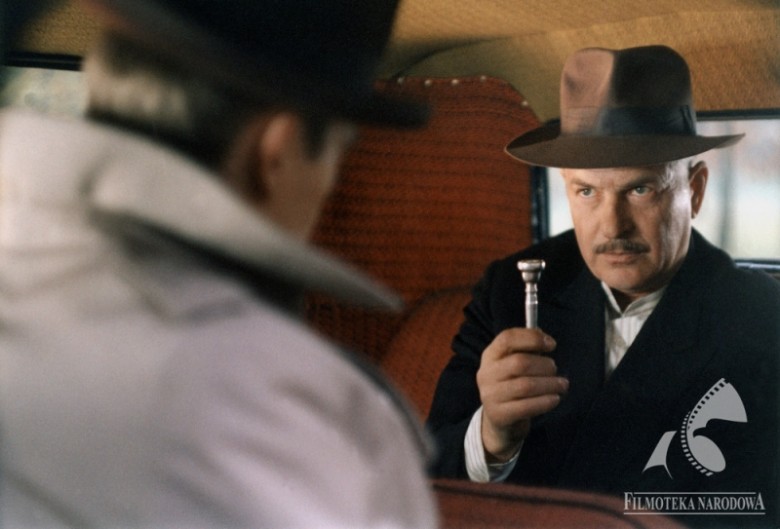
June 2015
"Pigs" (Psy) dir. Władysław Pasikowski, Poland 1992 104’
Pigs was one of the greatest surprises of 1993. The movie was controversial and it caused a major stir – it was showered with awards at the Gdynia Film Festival (including the Golden Duck) and at the same accused by some of the film critics of excessive brutality, nihilism, and an attack against the established values. It was admired by the young audience, people tired of martyrology and phoney patriotism, who found the ex-special communist services agent Franz Maurer, played by Bogusław Linda, their new hero, a strong man for hard times.
Pigs is an example of post-communist cinema of moral concern. The movie combines elements of American police detective movie with Polish reality (verification committees, burning secret police files, the growing presence of the Roman Catholic Church) in such a way as to become a mirror reflecting the problems of the early stages of Polish political transformation. The story of ex-state secret service agents trying to fit in the reality of the post-1989 Poland seems today one of the most important movies of the 1990s, the best film testimony to the period of transition, reflecting the "shock of freedom" and lack of stability.
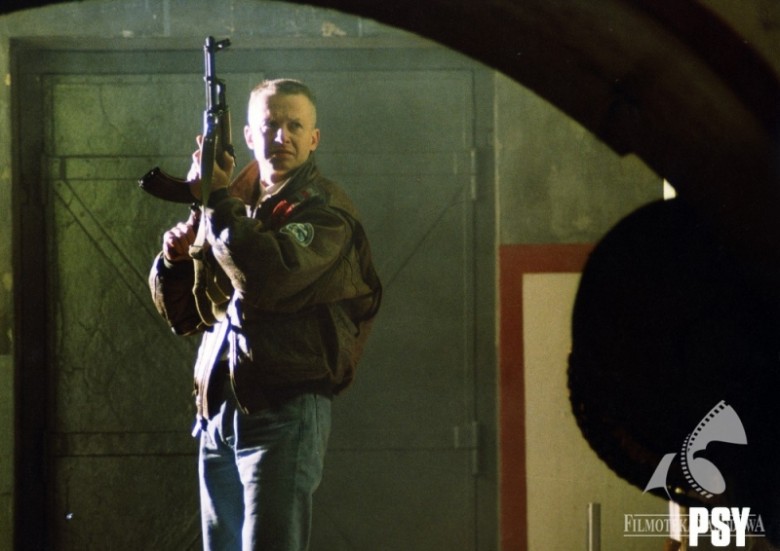
* To check the exact dates of the screenings please go to www.iluzjon.fn.org.pl
All films are screened in the re-mastered version.
Each screening will be preceded by a lecture in English by Michał Chaciński.
Tickets (kino Iluzjon):
Discount – PLN 15
Standard – PLN 17
Reservation:
Kino Iluzjon; ul. Narbutta 50 a; 02-536 Warszawa
Box office – 22 462 72 60;iluzjon.rezerwacje@fn.org.pl
ORGANIZERS:
Filmoteka Narodowa (The National Film Archive)

Cyfrowe Repozytorium Filmowe
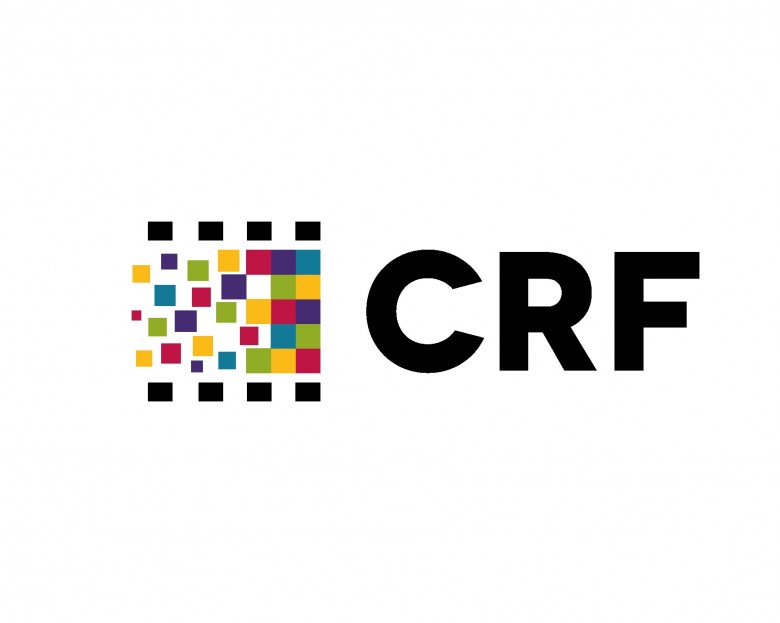
PARTNERS:











